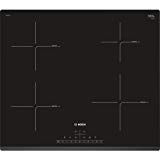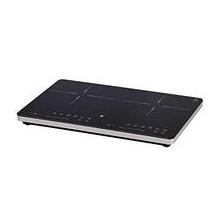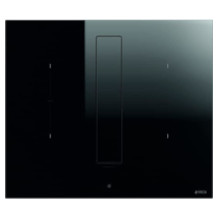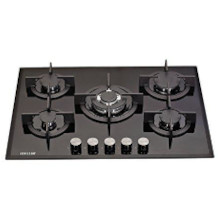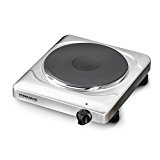Mini oven purchasing advice: how to choose the right product
- What You Need to Know
- A mini oven can be used either as an add-on or as an alternative to a conventional oven.
- Mini ovens save both space and energy.
- There are different models, such as a mini oven with an integrated toaster or with hot plates.
- Inexpensive versions of the mini oven are available for as little as 20 euros.
- Many models offer extras such as a rotating spit, a crumb tray or several baking trays.
The compact alternative to the oven
A mini oven is much lighter than an ordinary oven. It is quick and uncomplicated to set up and easy to transport. Holidaymakers in particular benefit from the small oven, which they can easily take with them to the campsite, holiday home or caravan. Since the installation location of a mini oven is flexible, it can also be placed on work surfaces or tables. This way, users do not have to bend down to operate the oven. This is an ideal solution especially for people with back problems.
Since the mini oven has only a small cooking space, it is heated up within a short time. So, unlike an ordinary oven, this version does not need to be preheated. With a mini oven, you also save time, because the baking-grilling or heating-up process is much faster than with a conventional oven.
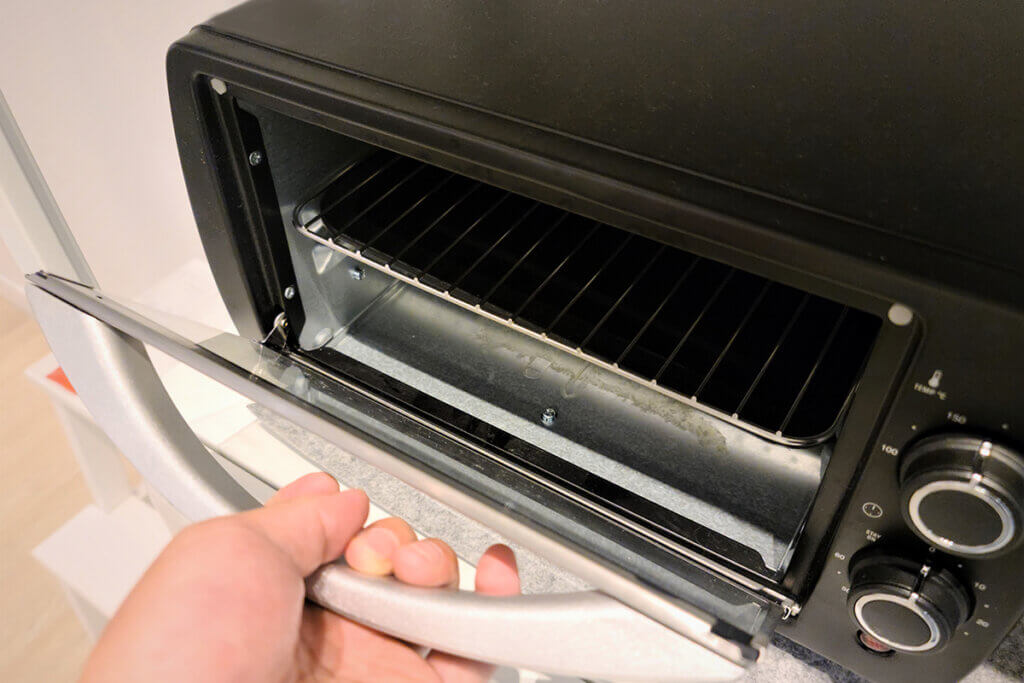
Because of its small size and low energy consumption, a mini oven is also much cheaper to buy than a large oven. For single or student households, it is a cheap and space-saving alternative. Although it only holds small amounts of food, it is still very versatile. Depending on the model, oven owners can use it to bake, grill, cook or reheat food. A mini oven can therefore also be used as a substitute for a microwave.
Also suitable for modelling clay
In addition to food, you can also use your mini oven to harden modelling clay such as FIMO. The top and bottom heat can bake the clay within a very short time. However, you must pay attention to the temperature, as the small oven gets hot very quickly. The appliance must not get hotter than 110 degrees Celsius, otherwise the modelling clay may discolour. Therefore, be sure to do a test run and use a baking thermometer if possible.
Another practical feature is that a mini oven does not require a high voltage current. It can be plugged into any socket and consumes much less energy than a conventional oven. However, it is also not quite as powerful and usually only has space for very small portions, which is why it serves at best as a supplement for large families. With 1,000 to 2,000 watts, however, the power of the small oven is more than sufficient for various small meals.
Pro points
- Space-saving
- Lower energy consumption than conventional ovens
- Can be set up flexibly
- No high-voltage current required
- No preheating necessary
Drawbacks
- Less powerful than conventional ovens
- Very small cooking chamber
Who is a mini oven suitable for?
Thanks to its versatility, a mini oven is basically suitable for every household. Since it is very space-saving and inexpensive, households with small kitchens and campers in particular benefit from the appliance. Seniors also like to use the small oven, as they can usually prepare smaller portions with it ideally and they are usually very easy to use. In small kitchens, on campsites or in caravans, there is no space for a large oven. If you still want to enjoy pizza, cakes, baked rolls or casseroles, you can use a mini oven. It is much more compact than a standard stand-alone model and therefore ideal for small kitchens, summerhouses, ski huts or caravans. It is also a popular alternative to steam ovens, contact grills and toasters.
Which is better: a microwave or a mini oven?
Microwaves and mini ovens are not only similar in appearance. Both are equally suitable for reheating or defrosting dishes. However, a microwave oven is less versatile because, at least with the simple ones, you can neither bake nor grill. Some mini ovens have several baking trays to cook food at different levels, or a rotating spit for the perfect grilling result. A microwave oven has neither. So if you only want to heat up or defrost food, you need a microwave. For everything else, a mini oven is more suitable.
Grilling, cooking or reheating
The versatile mini ovens are available in different versions. Depending on the area of application, a different variant makes sense. A standard mini oven usually has top and bottom heat and is suitable for over-baking, reheating and baking bread rolls.
For grilling

For all grill fans who do not have a garden or other space available for a grill, there are small ovens with a grill function. In most cases, there is a heating coil in the upper part of the oven that gives off a lot of heat and thus ensures perfect grilling results. Some models have a rotating spit in the middle of the oven, which enables more even grilling. Such ovens are suitable for grilling chicken and skewers, but can also be used for gratins and casseroles.
For cooking

Mini ovens with hot plates, also called small kitchens, allow users to cook and bake at the same time. These variants have one or two hot plates on the top of the oven. These are either ordinary hobs or ceramic hobs. In some models, the hobs can be switched on independently of each other, while others can only be operated together. Small kitchens are particularly popular in single households and for camping holidays. Depending on the power of the hobs, they can replace not only an ordinary oven but also a cooker. However, these variants only work with high-voltage current.
For toasting

media element toaster
Another variant is the combination of a mini oven and a toaster. These appliances consist of a small oven in the lower part and a toaster in the upper. When the oven is in use, the toaster slot can be closed by a slider. The oven and toaster can therefore never be used at the same time, but users can switch back and forth between the functions very easily. Those who have an oven with an integrated toaster do not need an additional appliance for their toasts and thus save space.
For pizza
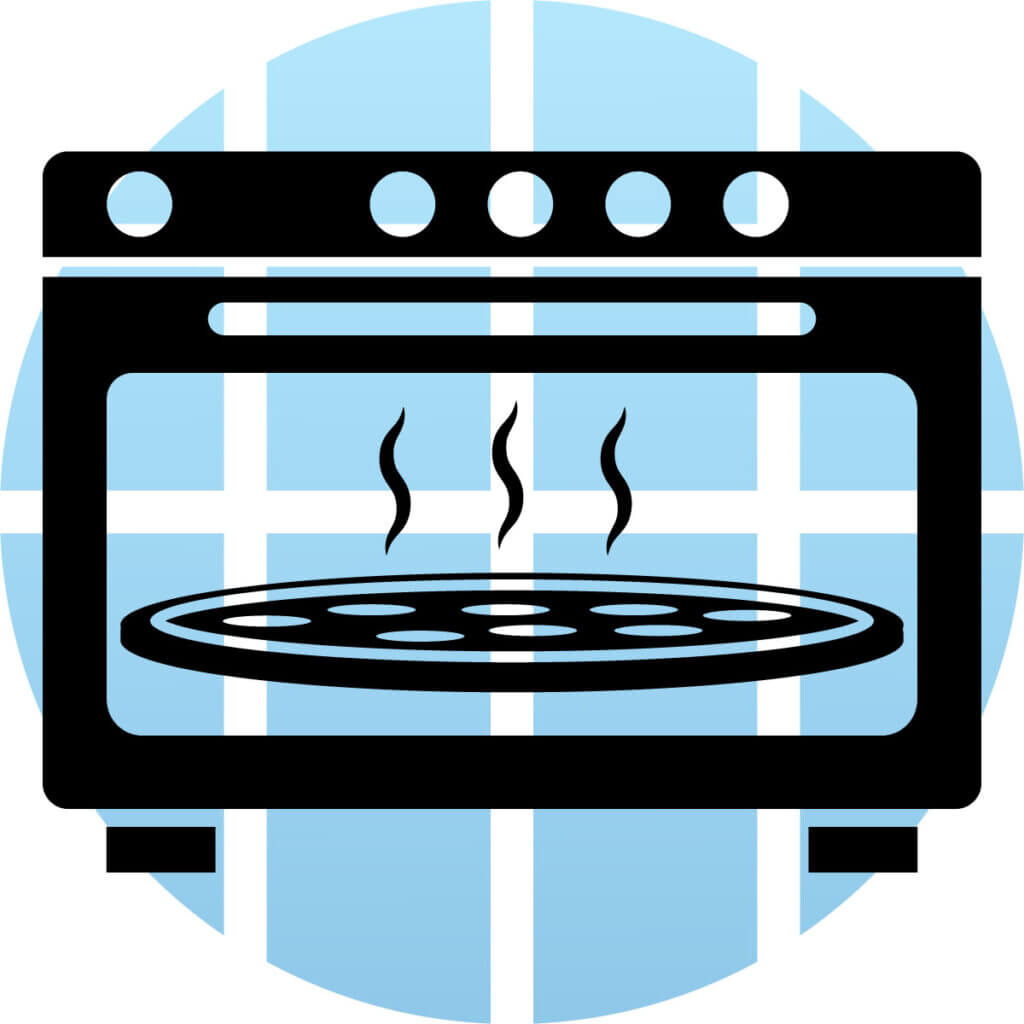
To bake pizza, you usually need a conventional oven, because ordinary mini ovens cannot generate enough heat. That’s why there are special pizza ovens that closely resemble mini ovens. Unlike mini ovens, pizza ovens reach temperatures of up to 400 degrees Celsius. They are available in different versions, either with a pizza stone, particularly high temperature settings or a terracotta ceiling. The pizza is then baked until crispy either on the pizza stone or an inserted pan.
For steam cooking

One of the most expensive mini oven models is the steam oven. It has a steam cooking function that releases steam from a small tank or drawer. This is very useful for many dishes. For example, a roast becomes juicier, a cake fluffier and fish is also very easy to cook. Different cooking levels are usually available, so that the oven can be adjusted to any dish. However, the steam cooking function is only available on very few appliances.
What to look for when buying a mini oven
If you want to buy a mini oven, you should consider a few aspects. The most important are the performance, the functions, the price and the safety of the appliance.
Performance
The power of a mini oven depends on the size and type of the appliance. Mini ovens have an output of around 1,000 to 3,000 watts, with larger models generally having a higher wattage than smaller ones. If you need less heat for most dishes and do not use the appliance frequently, a low-wattage version will suffice. However, if you use it regularly or use more heat, it should have at least 1,500 watts. Remember: The more power the appliance has, the more electricity it consumes.
Functions
Depending on the application, different functions are useful in a mini oven. If you want to grill with it, you will achieve the best results with a model that has a grill function. For an even grilling result, a rotisserie is a good choice. You should consider a steam cooking function if the appliance can be a little more expensive and you value cooked food. A microwave function is suitable for quickly reheating meals. In addition to top and bottom heat, many models also offer a convection function. With this function, the heat is distributed by a fan, which heats the food evenly. This function requires less heat and is therefore particularly energy-saving.
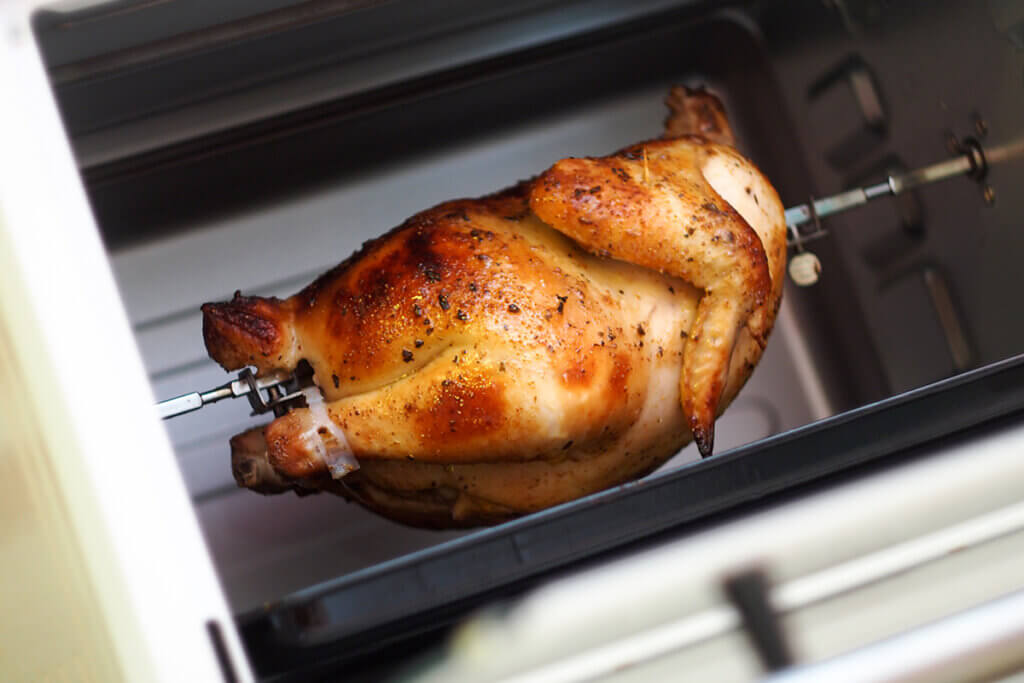
Volume
The size of the cooking chamber varies depending on the model. More compact appliances have a cooking space of 9 to 12 litres and are intended more for small snacks or rolls. Medium-sized models with a capacity of 20 to 30 litres are also good for preparing casseroles or cakes. In a single household, they can completely replace a conventional oven. Models with a cooking space of 30 litres or more are well suited for pizzas and roasts. Many of these larger models are therefore equipped with a rotary spit.
Size
Depending on where the appliance is to be placed, a different size makes sense. Although mini ovens are generally much smaller than conventional ovens, there are significant differences between the individual models. As standard, many mini ovens are about 20 to 40 centimetres high, about 20 to 50 centimetres deep and about 30 to 50 centimetres wide. Measure the space where the oven is to be placed beforehand and choose its size accordingly.
How big does a mini oven have to be to fit a pizza?
Most pizzas have a diameter of about 28 to 30 centimetres. The oven’s cooking space is measured in litres and should have a volume of at least 20 litres to provide space for a small pizza. Ovens with a volume of 30 or 40 litres are even more suitable, as they can also accommodate larger pizzas. If you have a smaller mini oven, you can of course still bake pizzas in it, you just have to divide it into several parts.
Temperature range
There are different temperature requirements for different dishes. If you only want to use the oven to bake rolls, 180 to 200 degrees Celsius is sufficient. Preparing a roast, on the other hand, requires a little more heat, around 250 degrees Celsius. The maximum temperature of many mini ovens is also 250 degrees Celsius. If you need higher temperatures for certain dishes, such as pizza, you should buy a pizza oven that can reach 400 degrees.
Operation
To make cooking, baking or roasting easy, the operation of the appliance should be as uncomplicated as possible. Mini ovens have either a control dial or a display for setting the temperature. Make sure your appliance has as many temperature settings as possible, as this will allow you to adjust it to each dish individually. Also make sure that all switches and knobs are clearly labelled so you don’t have to guess when setting the temperature. It is also important that the operating instructions are understandable.
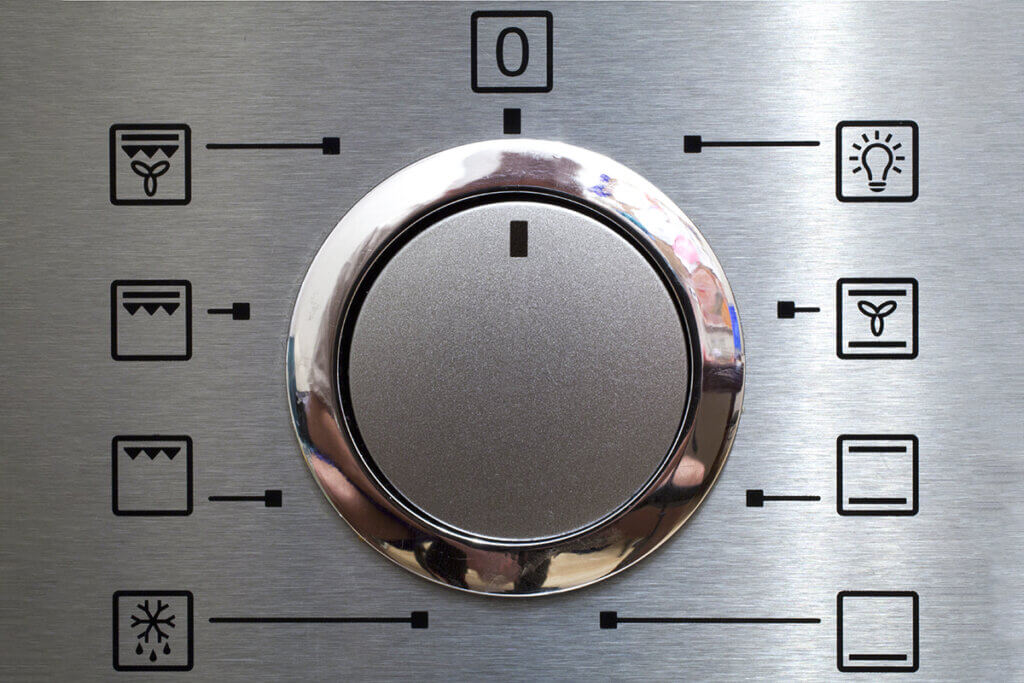
Safety
To ensure that you don’t burn yourself on the mini-oven and that the heat doesn’t escape from inside, good insulation is necessary. The door handle in particular must be thermally insulated. The oven should definitely have a double-glazed viewing window. Models with steel panelling are usually better made than versions with plastic panelling and are therefore more likely to be recommended. An automatic switch-off is practical because it allows the appliance to switch itself off if it is left on unintentionally for too long. This prevents the appliance from overheating and reduces the risk of fire. To prevent the oven from slipping, it should also have suction cups on the feet. Many appliances also have a child safety lock.
Extras
Besides the main functions, such as the grill function, there are other features that are handy on a mini oven. A timer is one such feature; through it you can set the baking, grilling or cooking time. Once this has passed, the timer gives a light or sound signal and you can remove your food. Most timers have a maximum duration of 60 to 120 minutes, which is usually sufficient. A timer is now a standard feature on most mini ovens.
Some models have an interior light, similar to a microwave. This means you can always keep an eye on your food while cooking, boiling or baking and take it out in good time. The advantage of this is that you don’t have to keep opening the door of the oven, as this causes the interior to lose about 20 per cent of its heat. However, this feature is not available on inexpensive models.
Most mini ovens come with one or more baking trays or racks. Multiple trays are convenient because you can then cook, bake or grill on different levels. If you want to work with several trays, an oven with convection is recommended, because with top and bottom heat, dishes do not cook satisfactorily on the middle level.
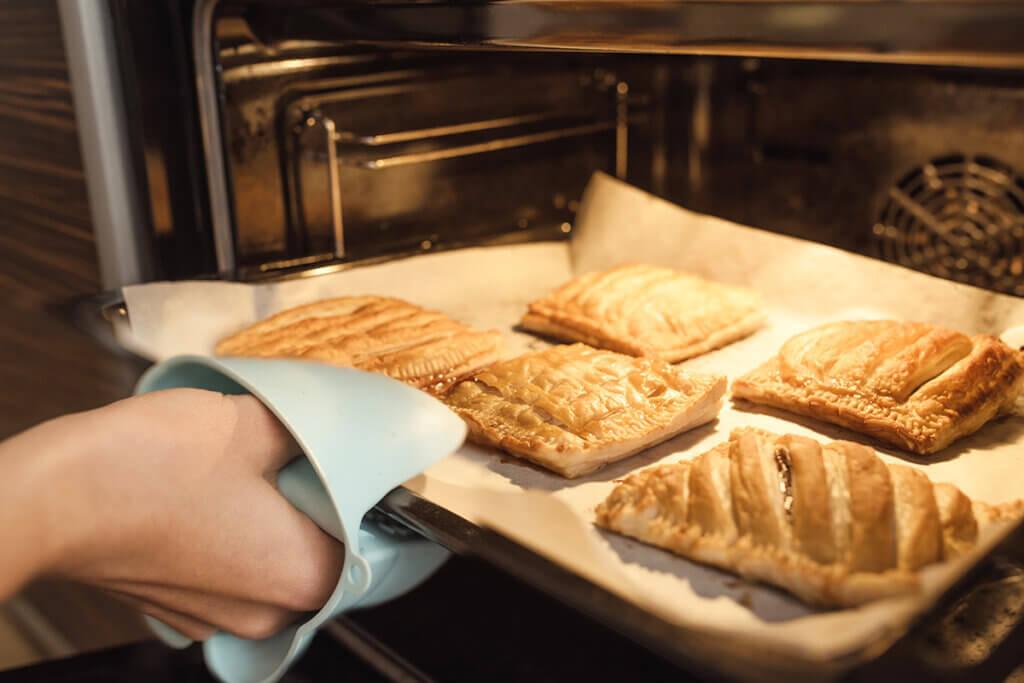
Some ovens have an integrated crumb tray in the form of a drawer that catches falling crumbs. This has the advantage that you can simply remove the drawer and clean it more easily than the interior of the appliance. Some mini ovens also come with oven gloves or recipe books, but these extras are not essential.
Price
Mini ovens come in different price categories. The cheapest models are available for as little as 20 euros. These usually have a very small cooking chamber and are primarily suitable for infrequent use. So if you only want to use the oven very sporadically and tend to prepare snacks in it, an inexpensive appliance is usually sufficient. You can buy a mini oven with grill function for around 70 euros. It usually has a cooking space of 30 litres or more, allowing you to prepare a wide variety of dishes. If you want to buy an oven with hot plates, you will have to spend at least 160 euros. Basically, the more expensive the appliance, the larger the cooking space and the more diverse the functions.
Where can I place my mini oven?
Due to its small size, you can basically place a mini oven on any surface in kitchens, caravans or outdoors. Since the appliance can get very hot, you should make sure that there is a suitable distance between it and other objects. It should be at least ten centimetres away from walls and other objects and have at least one metre of space upwards due to heat generation and ventilation. Also, never use the appliance when it is in a cupboard, as the risk of fire is otherwise too high. For the same reason, nothing should be placed on top of the oven itself and the ventilation slots should remain unobstructed. To prevent the mini oven from tipping over or falling down, you should place it on a non-slip and fireproof surface. If you place it near a window, food odours can be drawn off more easily.
How to clean your mini oven properly
For hygienic food preparation, it is recommended that you clean your mini oven before each use. This is very easy with most appliances, as the trays, grids and grill spit can be easily removed. A crumb tray also simplifies this process, as it reduces the amount of dirt on the bottom of the oven and allows you to easily remove the crumbs that have collected in the tray. Wipe the tray with a damp cloth and then let it dry before returning it to the oven. You can remove any remaining grease on the tray with a damp cloth and some washing-up liquid. You should also clean the walls of the oven regularly, otherwise grease and other residues can burn in.
A clean oven thanks to simple home remedies
For particularly stubborn grease and dirt stains, there are a few cleaning methods you should avoid. Do not clean the mini oven with a steel sponge, as the steel shavings can damage the oven and even cause a short circuit or fire. Scouring milk and shaving foam are also often recommended as aids, but it is better not to use them. They are harmful to the enamel surface of the interior and usually have ingredients that should not come into contact with food. Instead, there are a few tried and tested home remedies that remove dirt easily and without negative effects:
Baking soda

Baking powder is an easy way to clean a mini oven. Mix the baking powder together with three tablespoons of water to make a creamy paste. Apply the paste to the food residues and leave it to work for about 30 minutes. If the food is very dirty, you can leave the paste in the oven for longer. The substance dries and becomes powdery, after which you can simply remove it with a damp cloth. Since the soiling dissolves under the paste, it can be removed without scrubbing.
Salt

You can also clean the oven and baking tray with ordinary salt. To do this, first moisten the inside surface of the oven with a cloth. Then sprinkle all the stains with salt so that they are completely covered with a white layer. Then heat the oven to 50 degrees Celsius. When the salt has turned brown, you can turn off the oven. Now it must cool down before you can sweep out the salt and wipe with a damp cloth.
Natron

Baking soda is also a popular substance for removing stains from the oven. First mix the bicarbonate of soda with water in a 1:1 ratio, then use a brush or sponge to coat all the dirty spots in the oven with the bicarbonate of soda mixture. Clean areas and heating elements should be left out. Leave the mixture to work for about 20 minutes. Afterwards, you can simply remove the paste and the dirt with a damp cloth.
Lemon

You can even use lemon to remove dirt from your oven. To do this, you first need to mix some lemon juice with water in a baking dish. Simply place this in the oven and heat it to 120 degrees Celsius. The resulting steam dissolves burnt-in dirt. After the oven has cooled down again, simply wipe out its interior with a damp cloth. The advantage of this method is that it also removes unpleasant odours.
Well-known manufacturers
There are now numerous manufacturers of mini ovens on the market. Here are a few in brief:
Rommelsbacher:
This German company, which has been around since 1928, is still family-owned. It attaches great importance to the balance between modernity and tradition. Its appliances are known for their high quality.
De’Longhi:
Mainly known for its coffee and espresso machines, this Italian company also produces other kitchen appliances. Its mini ovens have a variety of functions.
Severin:
This manufacturer is also a German company that specialises in household appliances. Its appliances are mostly easy to use.
Steba:
This company has only been selling products under its own name for about 20 years. Before that, it produced exclusively for other brands.
Clatronic:
This company is known for its inexpensive household and entertainment appliances. They are sold in many supermarkets and discounters.

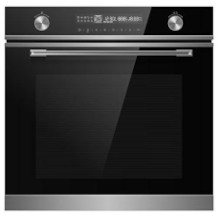
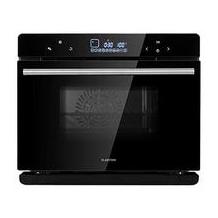
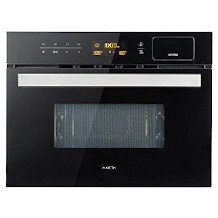
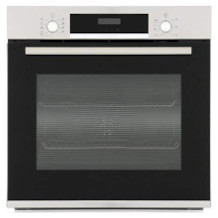
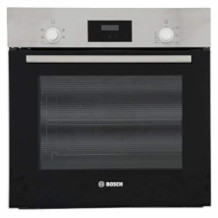
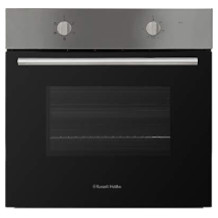
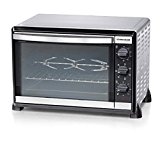

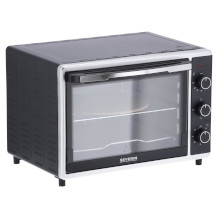
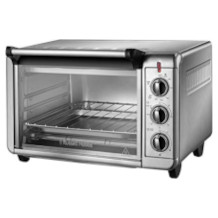
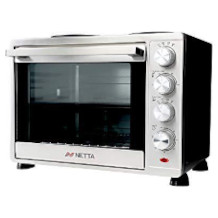

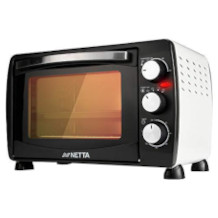
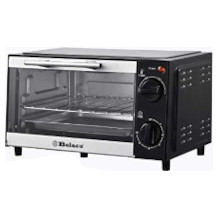
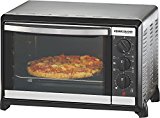
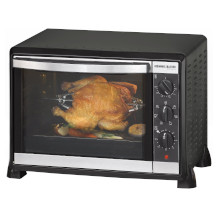
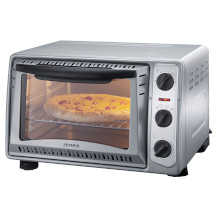

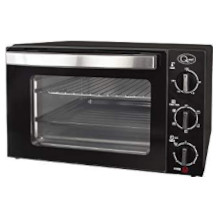

 1,180 reviews
1,180 reviews
